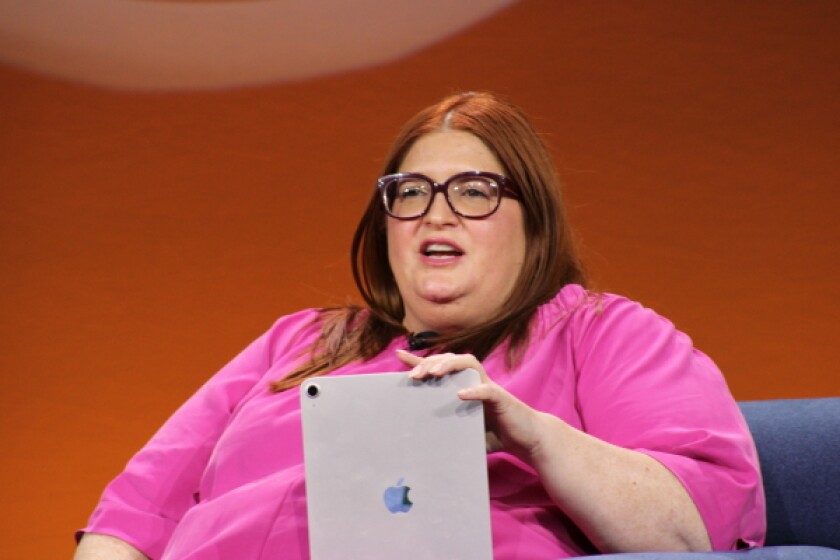Law firms and legal departments have long divvied up employees into two categories – lawyers and non-lawyers – but it’s high time they stopped, two trademark professionals from Netflix told INTA delegates today, May 2, in Washington DC.
Speaking at the INTA Annual Meeting in the Walter E Washington Convention Center, Jeremy Kaufman and Ali Buttars told onlookers that they could massively improve their intellectual property teams by giving more opportunity to non-lawyers.
Buttars, Netflix’s global head of trademarks and brand protection, pointed out that she wasn’t qualified as a lawyer and actually started out as a paralegal.
“I had mentors who opened doors for me that I didn’t even know existed, and I’m so grateful for that,” she said.
Kaufman, vice president of IP at Netflix, added that Buttars and other non-counsel like her had contributed a huge amount to the company over the years by applying their unique experiences and skillsets.
He said other in-house legal departments should also more actively promote and include non-lawyers if they wanted to benefit in a similar way.
Both speakers noted that there were several ways these departments could do so.
Empowering legal pros
“No matter how fun, interesting or stimulating the task might be, it’s important to take a step back and let someone else take ownership,” he said.
Buttars added that she was extremely nervous when she was given more responsibility in this manner, but that she rose to the occasion and quickly took charge of her new responsibilities.
“It set me free and empowered me,” she said. “I used to be very nervous about owning decisions and now I thrive on it.”
But Kaufman added that it was important for managers to support non-lawyers during this process.
“It’s really about getting the right balance,” he said. “You must make them feel supported because sometimes they just need to hear what the leaders think and get some context.”
He added that leaders should give budding non-lawyers a lot of rope but not set them adrift.
Hiring and names
“When I hire for a role, I don’t usually specify whether it’s for lawyers or non-lawyers – I’m open to both and do interviews with both,” she said.
She noted that she recently advertised for a brand protection role and ended up hiring a non-attorney because that person “was by far the most qualified candidate”.
Kaufman added that it was important to stay open to candidates who had followed slightly unusual career paths.
“It could be someone who didn’t graduate from high school but then went back, got their diploma at a later stage and then went on to do other interesting things.”
Buttars and Kaufman added that organisations should flatten their hierarchical structures, noting that giving lawyers and non-lawyers different titles when they were doing similar jobs could discourage those without legal qualifications.
They noted that Netflix had created such a structure. “We have a very simple and flat organisational structure that doesn’t focus on titles,” said Buttars.
The INTA Annual Meeting is being held this week at the Walter E Washington Convention Center in Washington DC.











